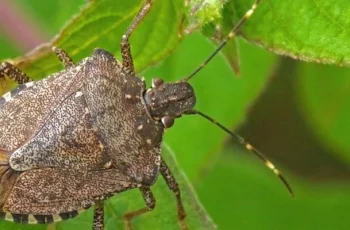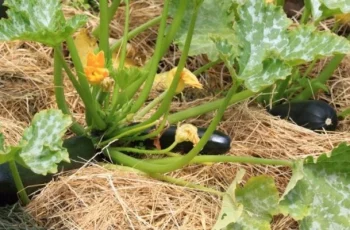Organic Aphid Control for Thriving Tomato Plants
Aphids, those tiny, sap-sucking insects, present a common challenge for tomato growers. Their ability to rapidly multiply and cluster on leaves and stems can lead to significant damage, including leaf curling, stunted growth, and the transmission of plant diseases. However, resorting to harsh synthetic pesticides isn’t the only solution. Organic and sustainable methods offer effective ways to control aphid populations, ensuring a healthy and productive tomato garden. This article explores comprehensive strategies for managing aphids naturally, focusing on prevention, natural predators, plant-based deterrents, and holistic gardening practices.

Understanding the Enemy: Recognizing Aphid Infestations
Before implementing any control measures, it’s crucial to accurately identify aphids and understand their behavior. These tiny insects, ranging in color from green and black to pink and yellow, typically congregate on the undersides of leaves and along new shoots. A telltale sign of an aphid infestation is the presence of sticky honeydew, a sugary substance excreted by aphids, which can lead to sooty mold growth.
Regular inspections of tomato plants, particularly new growth areas, are essential for early detection. Look for signs of stress, such as twisted or yellowing leaves, reduced fruit production, and weakened stems. Early intervention is key to preventing a full-blown infestation.
Harnessing Nature’s Allies: Encouraging Natural Predators
One of the most effective organic aphid control methods is to attract beneficial insects that naturally prey on aphids. Ladybugs, lacewings, hoverflies, and parasitic wasps are voracious aphid predators. Cultivating a diverse garden ecosystem provides a habitat for these beneficial insects, allowing them to thrive and keep aphid populations in check.
To attract these natural allies, plant a variety of flowering plants that provide nectar and pollen. Marigolds, dill, fennel, and alyssum are excellent choices. These plants not only attract beneficial insects but also add beauty and diversity to your garden.
Strategic Planting: Companion Planting and Trap Cropping
Companion planting involves growing specific plants alongside tomatoes to deter aphids. Certain herbs and vegetables emit strong scents that aphids dislike. Basil, oregano, chives, onions, garlic, and nasturtiums can act as natural deterrents when planted near tomato crops.
Trap cropping is another effective strategy. It involves planting aphid-attracting plants, such as mustard or sunflowers, a short distance away from tomato plants. These sacrificial plants draw aphids away from the main crop, reducing the likelihood of severe infestations on tomatoes.
Natural Remedies: Homemade Organic Sprays
Homemade organic sprays offer a safe and effective way to control aphids without harming the environment or beneficial insects.
Soap Spray: A simple soap spray, made by mixing a small amount of mild dish soap with water, can dissolve aphids’ protective outer layer, causing them to dehydrate and die. Apply the spray directly to affected areas.
Neem Oil: Neem oil, derived from the neem tree, is a natural pesticide that disrupts aphids’ feeding habits and reproductive cycles. Regular applications can help manage aphid populations without harming pollinators.
Garlic and Chili Pepper Spray: Garlic and chili pepper sprays repel aphids with their strong aromas. Blend garlic cloves or hot peppers with water, strain the mixture, and apply it to plants.
Building Plant Resilience: Boosting Plant Health
Strong, healthy tomato plants are better equipped to resist aphid infestations. Providing nutrient-rich soil through compost and organic fertilizers promotes plant vigor and resilience. Ensure proper watering, use mulch to retain moisture, and prune excess foliage to maintain plant health.
Avoid excessive nitrogen fertilization, as it can promote soft, lush growth that attracts aphids. Use balanced fertilizers and organic compost to ensure steady, healthy development.
Direct Intervention: Manual Removal and Pruning
For small infestations, physically removing aphids is a practical and chemical-free solution. A strong stream of water from a garden hose can dislodge aphids from leaves and stems. Alternatively, gently rub aphids off plants using gloved hands or a soft brush.
Pruning heavily infested areas can also help control aphid populations. Removing affected leaves and stems prevents aphids from spreading to other parts of the plant.
Harnessing Microorganisms: Beneficial Biological Controls
Introducing beneficial microorganisms into the garden can naturally combat aphid populations. Certain fungi, such as Beauveria bassiana, infect and kill aphids without harming other beneficial insects. These biological controls are available in organic formulations and can be applied to plants.
Compost teas and microbial soil enhancers also improve overall plant health, strengthening tomatoes’ natural defenses against aphids and other pests.
Sustainable Practices: Crop Rotation and Garden Sanitation
Crop rotation, moving tomatoes to different locations each season, disrupts the life cycle of aphids and other pests. This practice prevents aphids from establishing long-term populations in the garden.
Maintaining good garden hygiene is also crucial. Remove fallen leaves, weeds, and plant debris, which can provide hiding places for aphids and their eggs. Keeping the garden clean minimizes pest-friendly environments.
Creating Barriers: Mulching and Reflective Surfaces
Mulching around tomato plants helps regulate soil moisture and temperature, creating an environment that is less attractive to aphids. Organic mulches, such as straw or wood chips, are ideal.
Reflective mulches, such as aluminum foil or light-colored plastic, can deter aphids by confusing their visual perception. These materials reflect light onto plant surfaces, making it harder for aphids to locate suitable feeding areas.
Attracting Avian Allies: Encouraging Bird Activity
Birds are natural predators of aphids and can play a significant role in controlling their populations. Install bird feeders and birdbaths to attract species such as sparrows, wrens, and chickadees. Provide natural perches and shelter to encourage birds to frequent the garden.

Conclusion: A Holistic Approach to Aphid Management
Managing aphids on tomatoes organically requires a multifaceted approach that combines natural predators, strategic planting, homemade remedies, and sustainable gardening practices. By creating a balanced and diverse garden ecosystem, you can effectively control aphid populations without resorting to harmful chemicals. 1 Integrating these methods ensures a thriving tomato garden and contributes to a healthier environment.



